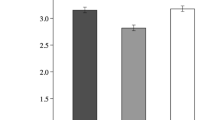Abstract
Since 1965, Britain’s major political parties have radically, and repeatedly, changed the ways in which they choose their leaders. Building on Cross and Blais’ (Party Politics 18(2): 127–150, 2012a) recent comparative study of party leadership selection in the five principal Anglophone (‘Westminster’) parliamentary democracies, this article first outlines a theoretical framework that purports to explain why the major parties in three of those countries, including Britain, have adopted such reform. It then examines why five major British parties have done so since 1965. It argues that, while Cross and Blais’ study makes a significant contribution to our knowledge and understanding of processes of party leadership selection reform in Anglophone parliamentary democracies, it has limited explanatory power when applied to changes enacted by the major parties in modern and contemporary Britain. Instead, the adoption of such reform in the British context is ultimately best understood and explained by examining both the internal politics and external circumstances of individual parties.
Similar content being viewed by others
References
Alderman, K. (1999) Revision of leadership election procedures in the Conservative Party. Parliamentary Affairs 52(2): 260–274.
Bale, T. and Webb, P. (2014) The selection of party leaders in the UK. In: J-B. Pilet and W.P. Cross (eds.) The Selection of Political Party Leaders in Contemporary Parliamentary Democracies: A Comparative Study. Abingdon: Routledge, pp. 12–29
Cross, W. P. and Blais, A. (2012) Who selects the party leader? Party Politics 18(2): 127–150.
Cross, W.P. and Blais, A. (2012b) Politics at the Centre: The Selection and Removal of Party Leaders in the Anglo Parliamentary Democracies. Oxford: Oxford University Press.
Cross, W.P. and Pilet, J-B. (eds.) (2015) The Politics of Party Leadership: A Cross-National Perspective. Oxford: Oxford University Press.
Denham, A. and Dorey, P. (2006) A tale of two speeches? The Conservative leadership election of 2005. Political Quarterly 77(1): 35–42.
Denham, A. and O’Hara, K. (2008) Democratising Conservative leadership selection: From Grey Suits to Grass Roots. Manchester: Manchester University Press.
Dorey, P. and Denham, A. (2011) O, brother, where art thou? The Labour Party leadership election of 2010. British Politics, 6(3): 286–316.
Dorey, P. and Denham, A. (2016) The longest suicide vote in history: the Labour Party leadership election of 2015. British Politics, 1–24
Drucker, H. (1981) Changes in the Labour Party leadership. Parliamentary Affairs 34(4): 369–381.
Drucker, H. (1986) ‘All the King’s horses and all the King’s men’: The Social Democratic Party in Britain. In: W.E. Paterson and A.H. Thomas (eds.) The Future of Social Democracy: Problems and Prospects of Social Democratic Parties in Western Europe. Oxford: Clarendon Press, pp. 108–126.
Garnett, M. (2006) Principles and Politics in Contemporary Britain. Exeter: Imprint Academic.
Harmel, R., Heo, U., Tan, A. and Janda, K. (1995) Performance, leadership, factions and party change. West European Politics 18(1): 1–33.
Heppell, T. (2008) Choosing the Tory Leader: Conservative Party Leadership Elections from Heath to Cameron. London: I.B. Tauris.
Heppell, T. (2010) Choosing the Labour Leader: Labour Party Leadership Elections from Wilson to Brown. London: I.B. Tauris.
Jobson, R. and Wickham-Jones, M. (2011) Reinventing the block vote? Trade unions and the 2010 Labour Party leadership election. British Politics 6(3): 317–344.
Kavanagh, D. (1983) Organization and power in the Liberal Party. In: V. Bogdanor (ed.) Liberal Party Politics. Oxford: Clarendon Press, pp. 123–142.
Kelly, R. (2003) Organizational reform and the extra-parliamentary party. In M. Garnett and P. Lynch (eds.) The Conservatives in Crisis: The Tories After 1997. Manchester: Manchester University Press, pp. 82–106.
Kenig, O. (2009a) Democratization of party leadership selection: do wider selectorates produce more competitive contests? Electoral Studies 28(2): 240–247.
Kenig, O. (2009b) Classifying party leaders’ selection methods in parliamentary democracies. Journal of Elections, Public Opinion and Parties 19(4): 433–447.
LeDuc, L. (2001) Democratizing party leadership selection. Party Politics 7(3): 323–341.
Pemberton, H. and Wickham-Jones, M. (2013) Brothers all? The operation of the electoral college in the 2010 Labour leadership contest. Parliamentary Affairs 66(4): 708–731.
Pilet, J-B. and Cross, W.P. (eds.) (2014) The Selection of Political Party Leaders in Contemporary Parliamentary Democracies: A Comparative Study. Abingdon: Routledge.
Punnett, R.M. (1992) Selecting the Party Leader: Britain in Comparative Perspective. Hemel Hempstead: Harvester Wheatsheaf.
Quinn, T. (2004) Electing the leader: The British Labour Party’s electoral college. British Journal of Politics and International Relations 6(3): 333–352.
Quinn, T. (2010) Membership ballots in party leadership elections in Britain. Representation 46(1): 101–117.
Quinn, T. (2012) Electing and Ejecting Party Leaders in Britain. London: Palgrave Macmillan.
Quinn, T. (2015) Explaining the result of the Labour leadership election of 2015. The Plot, October 5th. http://www.the-plot.org/2015/10/05/explaining-the-result-of-the-labour-leadership-election-of-2015-2/
Russell, M. (2005) Building New Labour: The Politics of Party Organization. New York: Palgrave Macmillan.
Stark, L.P. (1996) Choosing a Leader: Party Leadership Contests in Britain from Macmillan to Blair. Basingstoke: Macmillan.
Steed, M. (1977) Foreword. In: A. Cyr, Liberal Party Politics in Britain. London: John Calder, pp. 11–35
Wickham-Jones, M. (2014) Introducing OMOV: The Labour Party-Trade Union Review Group and the 1994 leadership contest. British Journal of Industrial Relations 52(1): 33–56.
Author information
Authors and Affiliations
Corresponding author
Rights and permissions
About this article
Cite this article
Denham, A. Choosing party leaders: Anglophone democracies, British parties and the limits of comparative politics. Br Polit 12, 250–266 (2017). https://doi.org/10.1057/s41293-016-0022-8
Published:
Issue Date:
DOI: https://doi.org/10.1057/s41293-016-0022-8




